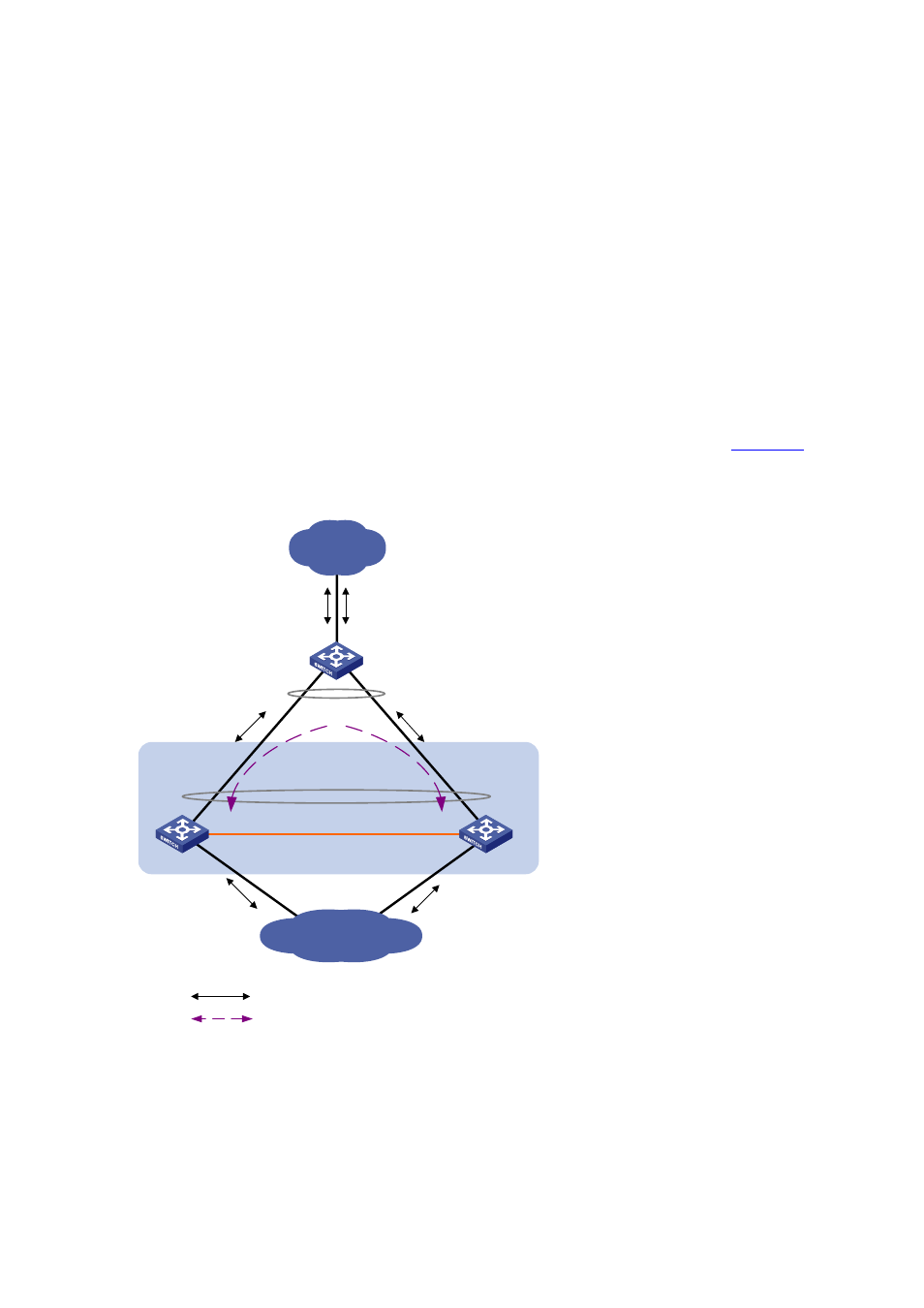Irf virtual device – H3C Technologies H3C S7500E Series Switches User Manual
Page 25

1-18
LACP MAD is implemented by sending extended LACP data units (LACPDUs) with a type length value
(TLV) that conveys the active ID of an IRF virtual device. The active ID is identical to the member ID of
the master and is thus unique to the IRF virtual device.
When LACP MAD detection is enabled for an IRF virtual device, the members exchange their active IDs
by sending extended LACPDUs.
z
When the IRF virtual device operates normally, the active IDs in the extended LACPDUs sent by all
member devices are the same, indicating that there is no multi-active collision.
z
When the IRF virtual device partitions, the active IDs in the extended LACPDUs sent by the
member devices of different IRF virtual devices are different, indicating that there are multi-active
collisions.
2) Networking
requirements
LACP MAD requires intermediate H3C devices that are capable of identifying and processing extended
LACPDUs to carry the Active ID field. For more information, see LACP protocol section in Ethernet Link
Aggregation Configuration. The commonly used networking diagram is as shown in
: the
member devices exchange LACPDUs through Device.
Figure 1-7 Network diagram for LACP MAD detection
Device
Master
Slave
IRF virtual device
Internet
Terminal
network
IRF link
Transmission path for common service packets
Transmission path for LACP MAD detection packets
Dynamic aggregation group on
Device, used for LACP MAD
detection and forwarding service
packets
Dynamic aggregation group on
Device, used for LACP MAD
detection and forwarding
service packets
3) Configuring LACP MAD detection
Configure LACP MAD detection by following these steps:
z
Create an aggregate interface (also required on the intermediate device);
z
Configure the aggregation group to work in dynamic aggregation mode; (also required on the
intermediate device)
